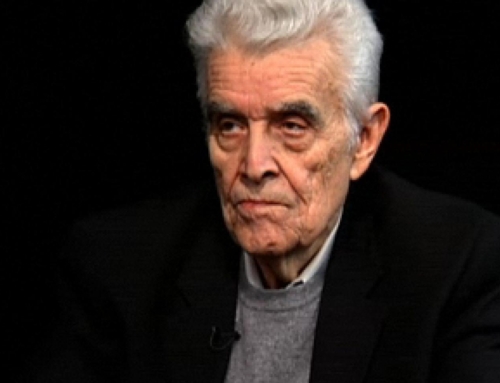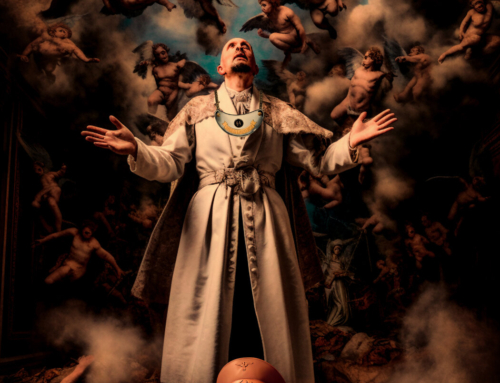It was good to see the Holy Father in his Apostolic Exhortation highlight the danger of gnosticism. His definition is certainly part of the gnostic heresy: the reliance of a secret wisdom or a specialized knowledge as a way of salvation. The word comes from “gnosis” or “knowledge.”
The problem was acute even when the New Testament was being written. St Paul warns Timothy about gnosticism in I Timothy 6:20-21 telling him to avoid useless babble and so called “knowledge”. He is probably also referring to it in Colossians 2:8 when he warns of being taken captive by philosophy and empty traditions.
The other definitive aspect to gnosticism, however, is the separation of the physical and the spiritual. This dualism is an intrinsic part of gnosticism, and it takes various different forms. Ross Douthat’s book Bad Religion is an excellent expose on how American Christianity has become gnostic.
He notes several different strands of gnosticism in our culture and our modern form of Christianity. The first is New Age religion. This is modern gnosticism par excellence. Like ancient gnosticism, it is a very attractive mix of specialist occult knowledge with a dash of self help therapy and the way to achieve salvation and happiness.
New Age religion is often openly gnostic, but more often it is implicit. It is gnostic not only in its love of specialist knowledge, but also in that it separates out the physical from the spiritual. It does this in two ways: first by ignoring the spiritual realm altogether and focusing only on individual psychology. The mantra here is “your God is within you.” The second way is by focusing on the spiritual realm while neglecting the physical. The mantra here is “I am spiritual but not religious.”
But Douthat very astutely goes on to name call the gnosticism in other areas of modern American religion. The modernist Biblical scholars are gnostics. In fact it is no co incidence that they actually love the gnostic apocryphal writings from the time period of the early church. Modernist Biblical scholars dismiss the historicity of the gospels in favor of a mythical interpretation, thus separating the physical (historical) from the spiritual (mythical.)
The other group to come under Douthat’s gaze are the American preachers who have done a mix up of self help therapy, positive thinking superstition along with a peculiarly American blend of optimism, smiles and worldly wealth. This is gnostic because the specialized knowledge required for all this good stuff is Pastor Whoever’s particular book or system of prayer. The Mormons, Jehovah’s Witnesses, Seventh Day Adventists, Christian Science and a whole shelf of other writers encourage their followers to adopt their teaching in order to attain success and wealth.
One of the other results of gnosticism separating out the physical from the spiritual is that they believe the physical doesn’t matter. Therefore you can do what you want with your body. It is your soul that matters most. Thus the relaxation of traditional Christian sexual morality within modern Christianity. Thus the accumulation of extraordinary amounts of wealth, neglect of the poor, disregard for the rules of religion or morality.
Because the physical doesn’t matter and the spiritual is the most important, it follows that whatever you do with your body, with your sexual choices, with your wealth, with the earth’s resources, with the environment, with animals, with anything in the physical world…doesn’t really matter.
Modern gnosticism in one form or another is now pretty much the default setting not only in New Age settings, but among the majority of mainstream Protestant denominations and among a growing number of Evangelical churches and ministries.
Is the Catholic Church infected too? Sure it is. It is infected in two different ways. The first are some of the new spiritualities that focus only on the inner life and a personal spiritual experience. They focus on the personal spiritual experiences or intellectual understanding instead of the physical–and the Pope mentions this temptation in his exhortation.
Gnosticism in the Catholic Church can also surface as a reliance only on technicalities of the faith in the areas of doctrine, canon law or liturgy–as if these are some sort of secret knowledge and if you get that right everything will be okay.
On the other hand, separation of physical and spiritual can work the other way too. Those who focus only on peace and justice issues and the improvement of the physical realm fall into the trap from the other direction.
Finally, gnosticism also surfaces in those who emphasize individualism and ignoring the church’s discipline and dogma. The discipline and dogma of the church is the physical working out of the spiritual truths and principles. To ignore the discipline and dogma in favor of subjective individualism and simply “following one’s own conscience” or simply “being who we are” is to lapse into a kind of gnosticism.
On this Solemnity of the Incarnation it is vital that we repudiate the false dualism of gnosticism. In Jesus Christ, Son of God and Son of Mary the physical and spiritual are one. True God and True Man. In the resurrected One heaven and earth are joined and in the Word Incarnate the true Wisdom is found.
This merging of heaven and earth, God and Man is the antidote to gnosticism and it is found most fully in the sacramental life of the Catholic Church. There the spiritual and the physical are united. We kneel in prayer and we rise to do God’s work in the world. There, in that life, incarnate in history, God Above is united with this physical realm in order to seek and to save that which was lost.







Leave A Comment
You must be logged in to post a comment.